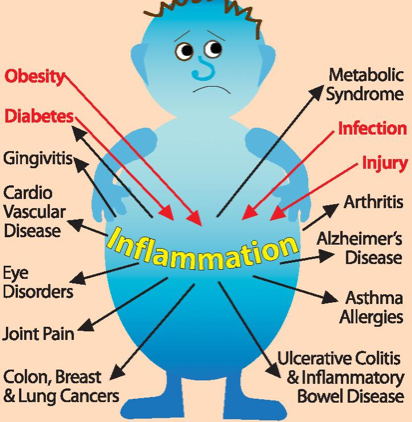Why You Should Care About Senescent Cells
On Aging: Senescent Cells, Inflammation, and How Senolytics Can Improve Your Health
Many of us already know some of the significant health consequences of inflammation, but did you know chronic, low-grade inflammation accelerates the process of aging and the diseases that come with it? The science community has created a word for this condition: Inflammaging. In this process, the immune system undergoes profound changes, rendering it less effective over time.
In today’s blog, we’re exploring the link between inflammation and aging; more specifically, the link between senescent cells and rapid aging. But before we dive in, let’s talk about senescent cells.
What are Senescent Cells?
Did you know that every day, more than 50 billion cells die in our bodies? This does not happen by chance! Instead, our bodies undergo something called programmed cell death. This process allows for the body’s systems to create new cells in areas that require constant dividing (ie: blood cells, skin cells, gut lining). But what happens when this process goes awry?
Senescent cells are the exception to this sophisticated process. To put it simply, senescent cells are cells that have stopped dividing, have not undergone programmed cell death, or have not been removed from the body. Over time (especially as these cells accumulate), this cell accumulation can cause damage to surrounding cells and bodily systems.
What is the link between Inflammation and Senescent cells?
As defined above, senescent cells are cells that have stopped dividing, have not undergone cell death, and are accumulating in the body. These cells contribute to inflammation, due to the fact that they secrete pro-inflammatory compounds that induce widespread inflammation.
At huemn, we are interested in what causes inflammation, and closely follow the latest research in longevity. If you begin to dive into the latest research, you will learn about senescent cells and how our bodies accumulate these cells as we age. These cells are harmful because they do not divide and actively secrete multiple inflammatory mediators, including cytokines, chemokines, and proteases. The senescent cells are hanging around and creating havoc in our organs and tissue, rightfully earning the name zombie cells.
What Does the Science Say?
The good news is that we do not have to stand by and do nothing while these cells accumulate. In this study with mice, the Mayo Institute was able to increase mice's lives by 25%, just by clearing out the zombie cells. Furthermore, the research team found that by eliminating senescent cells in mice, they were able to delay the onset of age-related diseases!
So what does this mean for humans? Another study in 2019 showed 14 patients provided with a senolytic supplement known as quercetin. Quercetin is a plant flavonol found in many fruits, vegetables, leaves, seeds, and grains. The results of this study were a reduction of all markers of senescent cells, while a measure of a physical test showed significant improvements.
As the science community has evolved, it has tested for other potential senolytics. In a test of 11 compounds, Fisetin, a common polyphenol found in nature, produces the most considerable senolytic effect. This is good news, because this is available in supplement form, and can also be found in nature in the highest quantity in strawberries.
What Does This Mean for You?
Now that we’ve talked senescent cells, inflammaging, and the power of senolytics, what does this mean for our huemn community? We have sourced a high-quality senolytic supplement that contains fisetin, along with some of the best senolytics studied by science. Second, we suggest and "hit and run" approach to clearing senescent cells. In this approach, you will take the senolytic for three months, then take three months off, or alternate every other month.
If you would like to learn more about our new senolytic compound, please give us a call at 832-779-1673, send us an email, or reach out to someone while you are in the shop! If you enjoyed this information, be sure to check out some of our other popular blog posts on aging below! Here's to aging in reverse!






